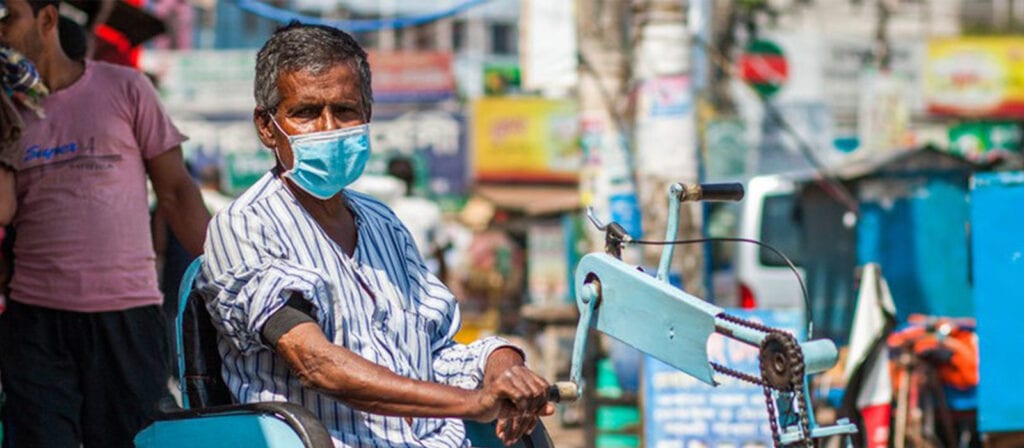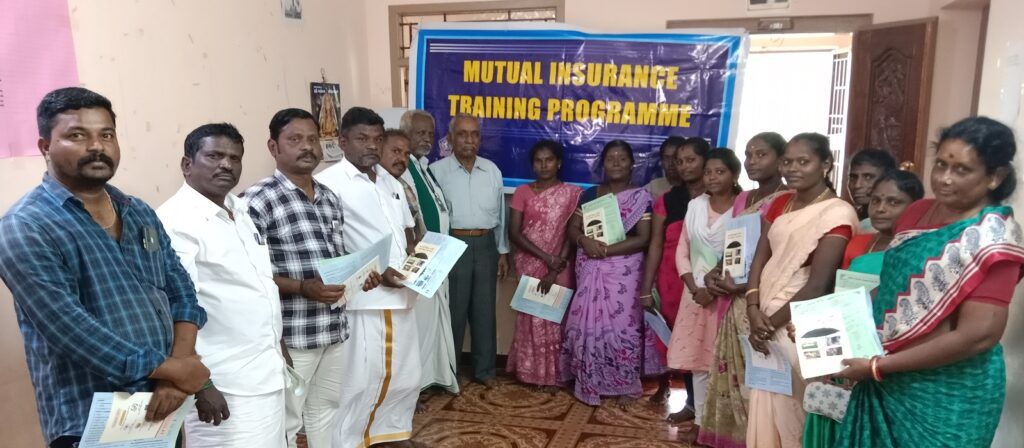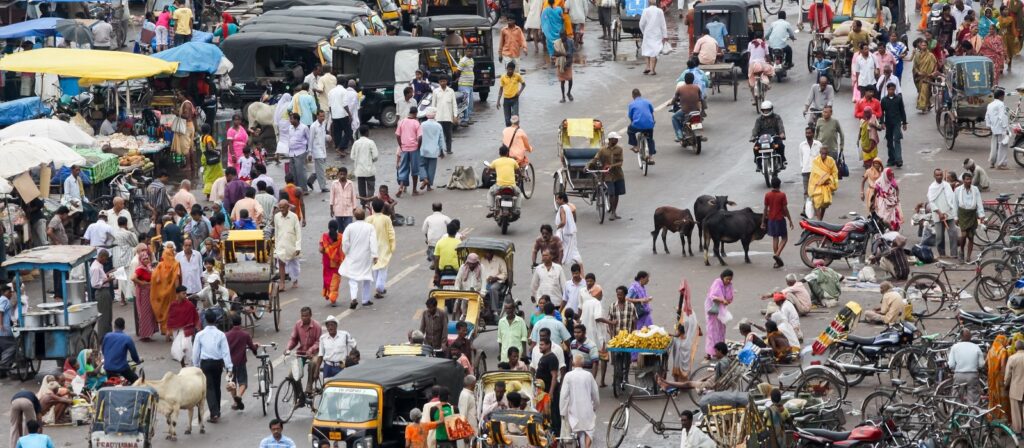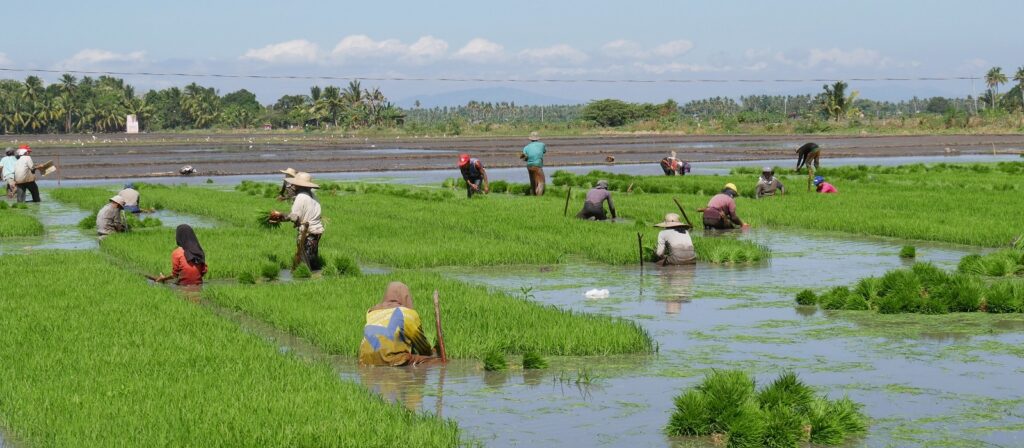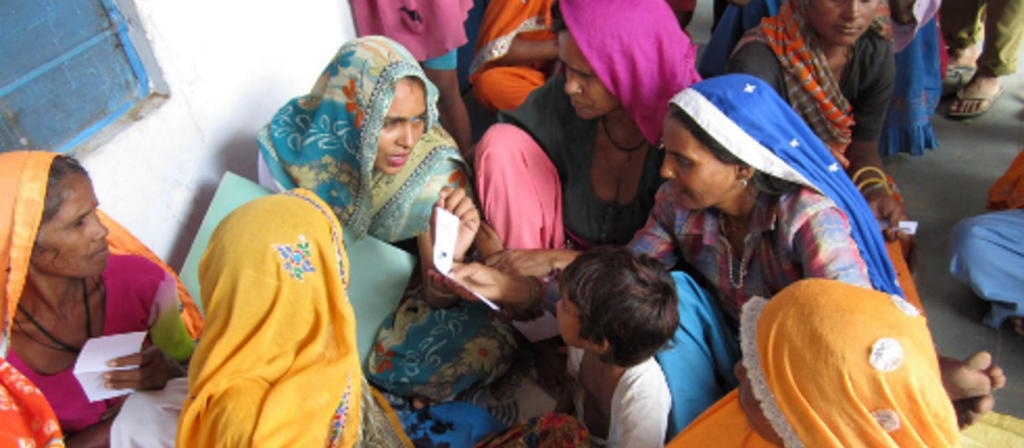As the COVID-19 pandemic continues to impact people across India, the SEWA Cooperative Federation, Self-Employed Women’s Association (SEWA), is undertaking efforts to provide relief and restoration work to help the health and livelihoods of 300,000 informal women workers and their families across the country.
The second wave of COVID-19 has had serious health and livelihood-related consequences on the lives and livelihoods of informal women workers and their families across India. Throughout the second wave of the pandemic, these women workers continued their quest for livelihood and work, while caring for the sick, the elderly, their young children and their families overall. Several women lost their source of income, putting them and their households in great distress.
SEWA Cooperative Federation was established in 1992 to support SEWA-promoted cooperatives. The Federation supports over 100 women-owned and women-led cooperatives, reaching 300,000 informal women workers across sectors, with the aim of achieving full employment and self-reliance for women workers in the informal sector. The Federation provides support services that enable these cooperatives, and other collective businesses of women workers in the informal sector, to become viable, to innovate and to scale.
SEWA’s response to the crisis was three-fold: ensuring access to healthcare, including emergency services, providing access to treatment and through distribution of health kits with essential medicines and masks; awareness on the virus and simple “do’s and don’ts” and creating links to doctors online, food security; and addressing livelihoods needs like working capital through women-owned cooperatives and collectives.
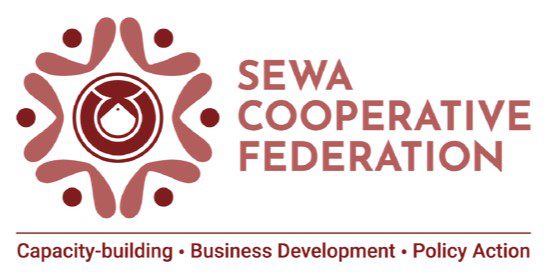
Published November 2021
200,000 meals ensured through distribution of staples like rice, flour, spices and snacks. 3,000 food packets distributed through our food cooperative.
4000 sanitary napkin packets.
Working capital fund of INR 70,000 (USD 94,000) matched with 9 women's collectives enterprises and 350 microentrepreneurs, across 5 sectors of work and 3 states.
Ensuring access to healthcare
In response to the second wave, access to basic healthcare and treatment was ensured through emergency medical support. SEWA set up linkages with doctors and hospitals, teleconsultation services, distribution of health kits, which included both individual and community kits, including: masks, sanitisers/soaps, vitamins, paracetamol tablets, immunity supplements, oximeters and thermometers.
In addition to this, other services were provided such as distribution of food kits and sanitary napkins. SEWA health cooperative is also equipped with oxygen concentrators, in order to ensure basic resources reach the last mile.
SEWA also linked 3,000 informal women workers with insurance.
Securing livelihoods
As the severity of the second wave started easing out, the livelihood crisis became very evident. Many informal women workers had lost their livelihoods due to COVID, and with rising expenditures on health, food and other essentials, were finding it difficult to sustain themselves. In response, SEWA provided working capital to nine enterprises and 350 micro-entrepreneurs, across three states.
The capital was used for purchase of raw material for production, ensuring timely payments to workers, diversifying revenue models. It will be reaching six more enterprises in Kerala and Nagaland with such support shortly.
India’s last-mile Covid-19 responders
SEWA was recognised by the World Economic Forum (WEF) as one of India’s last-mile Covid-19 responders. The list includes local organisations and social entrepreneurs which have, according to the WEF, demonstrated that swift action in four priority areas can enhance reach and scale in the difficult to reach ‘last mile’. The WEF believes that the efforts of organisations such as SEWA Cooperative Federation and its sister cooperative organisations can provide valuable lessons for other regions which are fighting new waves of the Covid-19.
Mirai Chatterjee, Chairperson, SEWA Cooperative Federation, Self-Employed Women’s Association (SEWA) says: “The COVID-19 pandemic in India was beyond expectation, belief and our preparedness. Through our cooperative leaders, we reached the poorest and neediest with health relief efforts. We also supported our cooperatives with working capital, through which they were able to continue their business activities during the pandemic. Women have been at the front and centre of our work; they have shown the way to a just, community-focused recovery.”
Way forward
Health authorities have warned of a possible third wave of COVID-19 and though its severity is hard to predict, at SEWA Cooperative Federation and Lok Swasthya SEWA are preparing for its effects.
They are working with grassroots leaders to closely monitor the ground-level situation, continue to increase awareness on the virus and its effects, and are actively promoting vaccination. They will continue to work closely with local public health centres through grassroots women leaders and local cooperatives/collectives.

